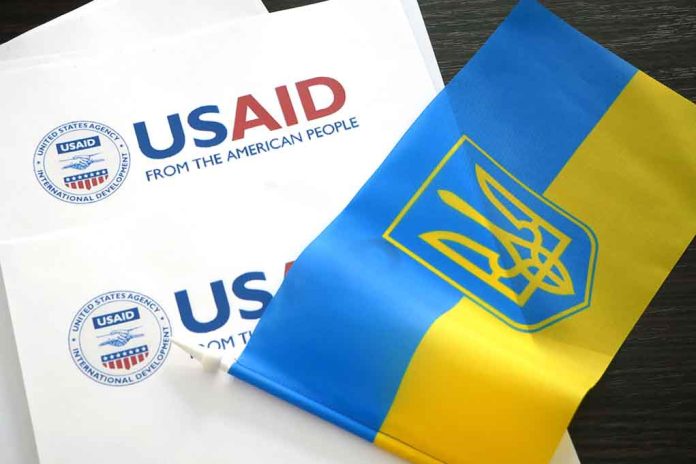
Elon Musk and Donald Trump join forces to challenge USAID’s operations, sparking a heated debate on government spending and efficiency.
Key Takeaways
- Elon Musk labels USAID a “criminal organization,” with Trump echoing criticism
- Trump freezes USAID funding, considering its integration into the State Department
- Musk’s Department of Government Efficiency (DOGE) aims to reduce federal spending
- House conservatives support scaling back USAID, citing concerns over national debt
- Democrats and aid officials warn of potential negative implications of dismantling USAID
Musk and Trump’s Unified Stance Against USAID
The United States Agency for International Development (USAID) finds itself at the center of a political storm as tech mogul Elon Musk and former President Donald Trump align in their criticism of the agency. Musk has leveled serious accusations against USAID, branding it a “criminal organization” and alleging its involvement in covert operations.
Trump has echoed these sentiments, describing USAID as being “run by radical lunatics” and hinting at potential reforms. The former president’s initial response was to freeze aid spending, later allowing waivers for essential humanitarian aid, which has created uncertainty about USAID’s future.
The critique of USAID has gained significant traction, with Musk alleging the agency’s involvement in “rogue CIA work” and bioweapon research. These accusations have led to a broader discussion about the agency’s role, spending practices, and overall effectiveness in advancing U.S. interests abroad.
Because USAID is/was a radical-left political psy op https://t.co/Th10uk7dQe
— Elon Musk (@elonmusk) February 3, 2025
Trump’s Response and USAID’s Uncertain Future
In response to these criticisms, Trump has taken decisive action by freezing USAID’s funding. This move has created a cloud of uncertainty over the agency’s future, with reports suggesting that Trump may be considering integrating USAID into the State Department. The president’s stance on the matter was clear when he stated, “It’s been run by a bunch of radical lunatics, and we’re getting them out… and then we’ll make a decision (on its future).”
The freezing of USAID’s funding has led to significant disruptions within the agency. Approximately 60 senior USAID staff members have been placed on administrative leave, allegedly for attempting to bypass Trump’s executive order to halt foreign aid. This has resulted in program shutdowns and widespread confusion among aid workers and recipients alike.
The Role of Musk’s Department of Government Efficiency
At the center of this controversy is Musk’s Department of Government Efficiency (DOGE), an unconventional entity tasked with reducing federal spending. Despite lacking official government department status, DOGE has been granted considerable authority in this matter. Reports indicate that DOGE staff have attempted to access classified documents and secure spaces within USAID, raising concerns about national security and the extent of Musk’s influence on government operations.
The involvement of DOGE has not been without controversy. Two top USAID security officials were put on leave for denying access to DOGE, highlighting the tensions between the agency and Musk’s team. Furthermore, DOGE has reportedly taken control of USAID’s computer systems, a move that has intensified the debate over the appropriate boundaries of private sector involvement in government affairs.
Conservative Support and Democratic Concerns
House conservatives have rallied around Trump and Musk’s efforts to scale back USAID. Rep. Andy Biggs, R-Ariz., echoed the sentiments of many conservatives when he stated, “USAID is a corrupt governmental organization run by unelected bureaucrats created to shovel taxpayer dollars to Democrats’ pet projects overseas.” This perspective aligns with broader conservative concerns about USAID’s connection to the CIA as well as national debt and deficit spending.
I don’t think people fully appreciate what a big deal it is to shut down USAID.
Democrats used it as their piggybank to enrich rabid activists who paid themselves enormous sums. Then they donated to Democrats. They also used it to fund fake news too.
Major $$ problems incoming.
— Robby Starbuck (@robbystarbuck) February 3, 2025
However, Democrats and some aid officials have voiced strong opposition to the potential dismantling of USAID. They argue that such a move would have negative implications for U.S. national security interests and global stability. Rep. Diane DeGette, D-Colo., expressed concern about the process, stating, “USAID is critical in advancing U.S. national security interests, providing humanitarian aid, and strengthening global stability. Musk is an unelected billionaire with no authority to make these decisions. This isn’t governance, it’s authoritarianism.”
The Path Forward
As the debate over USAID’s future continues, the agency finds itself at a crossroads. With its funding frozen, its online presence disrupted, and its staff facing uncertainty, the once-powerful organization’s fate hangs in the balance. The outcome of this controversy will likely have far-reaching implications for U.S. foreign policy, international aid efforts, and the delicate balance between government spending and national security interests.
As the situation unfolds, it remains to be seen whether USAID will undergo a dramatic restructuring, be absorbed into the State Department, or face complete dissolution. What is clear, however, is that the agency’s future will be shaped by the ongoing debate between those who see it as a vital tool for advancing U.S. interests abroad and those who view it as an unnecessary and potentially harmful drain on taxpayer resources.









